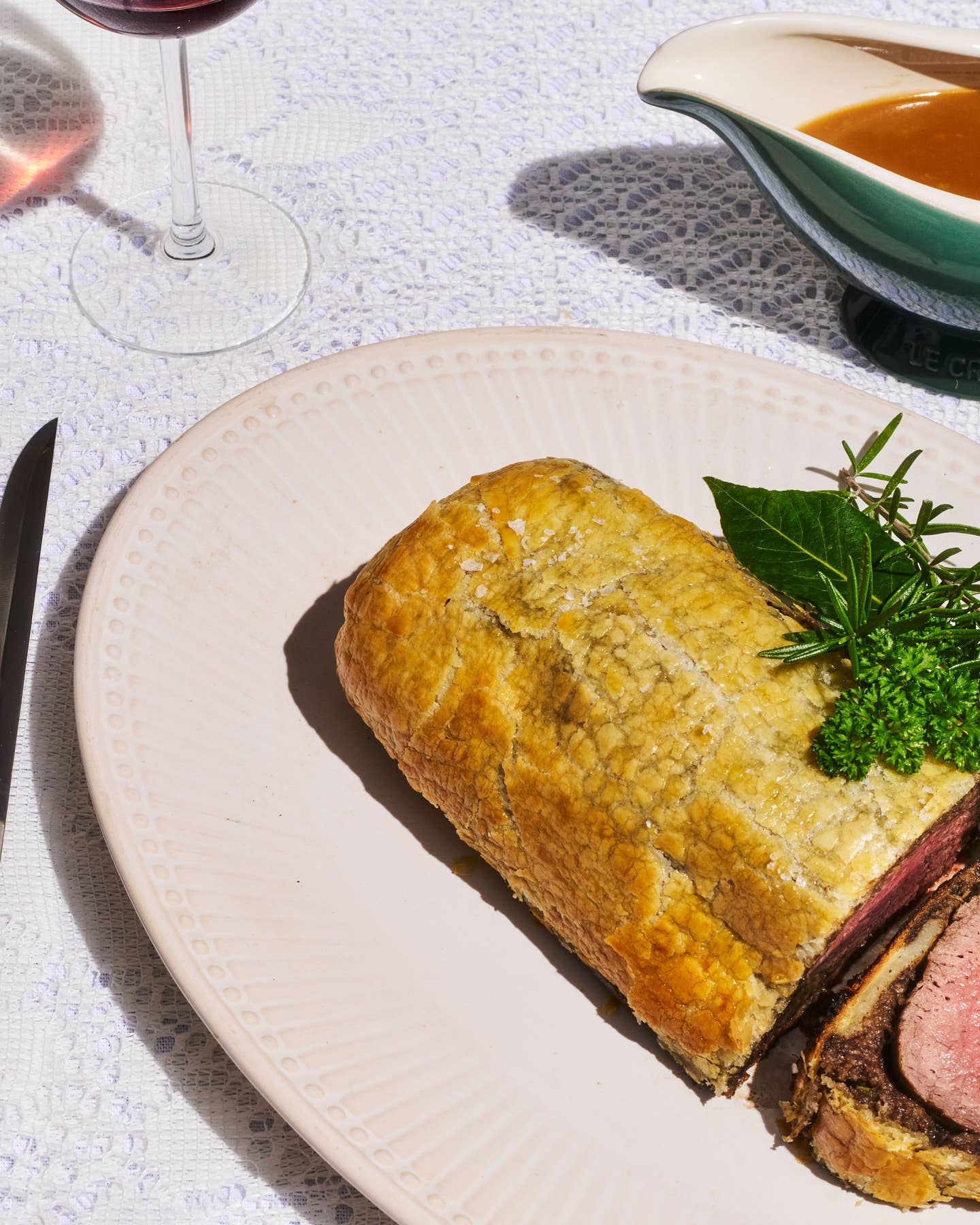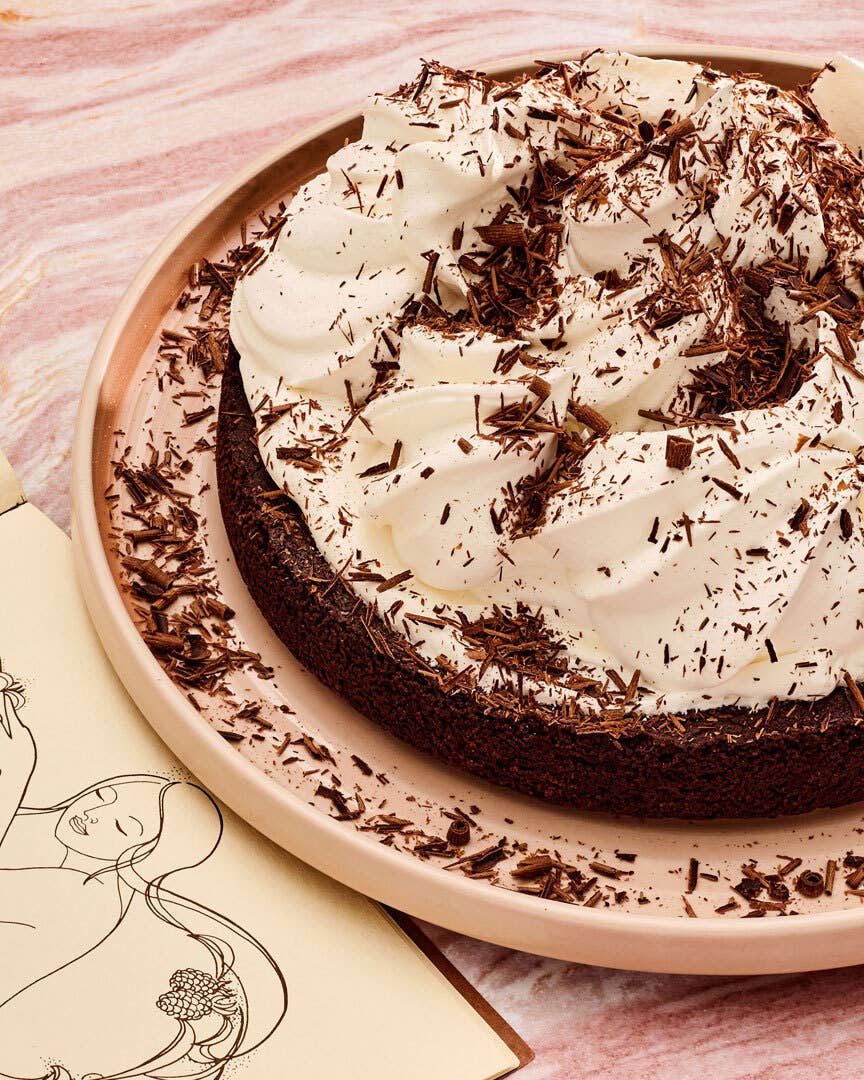
What 22 Million People Eat at the World’s Largest Pilgrimage Site
In Karbala, Iraq, a reporter joins an ancient holy route to see what’s cooking.
This piece originally appeared in SAVEUR’s Spring/Summer 2025 issue. See more stories from Issue 204 here.
As the sun sets in a blaze of orange over the golden domes of Karbala, drums beat and black-clad pilgrims pack the streets of one of Iraq’s holiest Shia cities, a two-hour drive south of Baghdad. Some 22 million believers have descended upon Karbala (population: 600,000), as they do every August for Arbaeen, the largest annual gathering of people in the world. And those people have to eat.
From a rooftop, I watch endless processions of pilgrims inch toward the shrine of Husayn ibn Ali—a grandson of the prophet Mohammed, who was martyred at the Battle of Karbala in 680 C.E. Everywhere you look, there’s food: women seasoning chicken in big copper vats, men grilling skewers of meat over hot coals, bakers slapping samoon (Iraq’s signature flatbread) into makeshift tandoor ovens. Remarkably, all these delicacies are free.
“Arbaeen is a reaffirmation of our religion,” says Jassam al-Saidi, a historian who works for the Al-Abbas Shrine in Karbala. He explains that Arbaeen (“40” in Arabic) marks the 40 days of mourning for Husayn, one of the 12 Shia Imams seen as the prophet’s successors.

It’s written in Shia histories that Husayn sacrificed himself in a triumph of good over evil. Though commemorated since the seventh century C.E., Arbaeen was outlawed under Saddam Hussein’s Sunni-led regime, then revived in 2003 after the U.S.-led invasion of Iraq. Arbaeen now attracts more pilgrims than the Hajj to Mecca, as Shias reclaim their tradition.
“Imam Husayn protected the values of the prophets [...] so people give food to pilgrims in thanks,” al-Saidi explains, describing how Iraq’s citizens donate their time and money to keep so many fed. “When you love someone, you gift them food. It’s Iraqi culture. We always give away bread rather than seeing it go stale.”
Iraq’s boundless hospitality is in full force during the celebration—volunteers provide not only free food and water but also lodging, medical care, and even foot massages at service stations called mawkibs. There are some 14,500 of them along the desert roads to Karbala. Al-Saidi tells me they’re “the lifeblood of Arbaeen.”
Some mawkibs are little more than a guy and a grill, while others are major operations funded by sheikhs and managed by big-name Baghdad chefs. At one, I meet Syed Zaheer Abbas. A student from Pakistan, he has walked nearly 50 miles from the holy city of Najaf, starting each morning at 4:00 a.m. and resting at prayer times. “It’s hot. You’re tired. But you’re served water and food constantly,” he says. “If your shoes break, they repair them. You don’t need money. You don’t worry about anything because the people of Iraq serve pilgrims from all over the world.” Karbala locals—along with volunteers from across the region—give as much as they can.
On Al-Jumhuriya Street, close to Husayn’s shrine, I spot butchers breaking down carcasses in alleyways. Women in colorful hijabs patiently queue for plates piled high with dolmas stuffed with rice, onions, and peppers.
A bit farther down the road, the smell of shawarma draws pilgrims to a makeshift kebab kitchen. At the center of the billowing smoke is Ahmed Albayati. He had an hour’s sleep last night, and sweat drips from his brow as, bleary-eyed, he shovels glistening meat seasoned with cumin and coriander into toasted samoon.
“We make 7,000 meals a day,” he says, thrusting a hot, fresh kebab into the outstretched palms of a woman in a flowing black robe. That evening, Albayati’s team of 15 volunteers will serve nearly 500 pounds of shawarma with assembly-line efficiency. At breakfast tomorrow, there will be bubbling cauldrons of makhlama—eggs and tomatoes seasoned with bahar asfar, a blend of turmeric, cumin, coriander, and cardamom—to tend. Then it’ll be lunchtime: hacked-up roast chicken, fluffy timman anbar (yellow rice), and rib-sticking fasolia yabsa (white beans simmered in tomato sauce).
A few stalls away, silver-bearded men dig into boiled pacha (sheep’s head), their fingers dripping with grease. Behind them, a pot of kubba (dumplings in broth) simmers away on the dusty roadside, and a group of teenagers serve mugs of Iraqi coffee, squeeze pomegranate juice into plastic cups, and pat napkins into hands.
It’s dark now, but the heat is still punishing. Beside the teenagers, I notice an elderly man with a keffiyeh wrapped around his head. He’s covered in sweat and using a scrap of cardboard as a fan—not for himself, but for the tides of people who pass him, in a noble effort to keep them cool.
Keep Reading
Continue to Next Story










